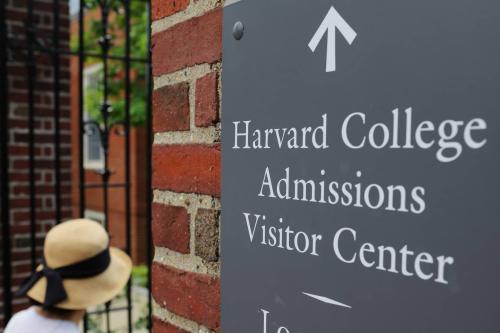The below excerpts some highlights from Stuart Butler’s conversation with Fareed Zakaria and Anant Agarwal of edX on CNN. The full conversation can be viewed on the CNN website or in the video embedded.
Stuart, explain first the kind of crisis in what you’ve called the business model for higher education.
Well, it certainly is a crisis that they’re facing. First of all, the costs of traditional education have been going up and the indebtedness associated with it. Now student tuition debt in the United States exceeds credit card debt. Secondly…
And it’s $1 trillion, right?
Butler: Yes, exactly. Secondly, you’re seeing different kinds of information coming forward so that people can actually evaluate the success of going to one college or another, whether it actually pays off.
And then the third thing, which you referred to, is that you’re seeing new kinds of technologies that, first of all, appeal to students who are not part of the regular market, but now that technology is being developed, such as through edX and through others, such that it is really beginning to break open the existing traditional market. So there’s an existential threat to the very business model that, quite honestly, has been lasting for almost 2,000 years.
You point out the numbers are pretty staggering. You now have, among private, non-profit college graduates, 65 percent in debt. The average indebtedness is $20,000. Cost is obviously now at two, three hundred thousand dollars to go to college, at least. And it’s not clear that they get that much out of it.
Butler: That’s right. And that’s the driving force. Once you combine information about whether you’re getting good value for money, and then you combine that with new technologies, that gives you different ways of actually getting to the same result. That’s what breaks open a market.
But of course, a lot of people say, that’s fine, but you can’t just sit in front of a computer and watch some professor – that’s not education. What do you say to that, as somebody running an outfit that does sort of that?
Agarwal: Today’s online education is not our grandfather’s online education. Its completely transformed. We are doing short videos, interactive gaming technology where professors are using game-like technologies, discussions, segments such as yours, where various people get together, experts in the field get together to discuss a topic. So it’s not just a video of a professor standing at the end of a classroom. So the technology has advanced tremendously. We bring discussion forums and the social into the classroom, into the online experience. And so this can be a very rich and very high quality experience.
<
/p>


Commentary
Are Massive Open Online Courses the Future of Education?
December 15, 2014